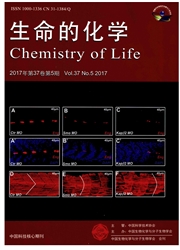

 中文摘要:
中文摘要:
衰老与肿瘤的相互调控是人类研究中重要的课题之一,二者均由细胞损伤造成,且都受细胞损伤应激调节基因的调控。衰老可以作为抑制肿瘤的天然屏障,肿瘤的增殖机制可以作为对抗衰老的重要手段。在二者平衡的寻求中,端粒及端粒酶发挥了不可忽视的作用。端粒酶作为逆转录酶保持了细胞中“分子时钟”一一端粒的长度,减少了染色体损伤,从而保证了细胞分裂的持续进行。端粒酶在调控端粒长度的同时,还可以通过影响线粒体功能从而影响细胞代谢水平,在这个过程中,重要的抑癌基Np53起到了重要作用。鉴于端粒及端粒酶的重要调节作用,寻求衰老及肿瘤的平衡从而达到同时对抗衰老及肿瘤变得更加可行。本文探讨同时调节衰老与肿瘤的重要靶点之间的关系,为更好地寻找衰老与肿瘤的平衡打下基础。
 英文摘要:
英文摘要:
The relationship between aging and cancer is one of the most important subject in human studies, both are caused by cellular damage, and regulated by the cellular damage stress regulation gene. Aging can be seemed as a natural barrier of inhibiting tumor, tumor proliferation mechanism can be used as important means against aging. In the seeking of the balance of tumor and aging, telomere and telomerase have played important roles. As telomerase reverse transcriptase keeps the cells "molecular clock" - the length of the telomere, and reduces the chromosome damage, thus ensuring the ongoing of the cell division. Telomerase regulates the telomere length, at the same time, also can affect mitochondrial function so as to affect the level of cell metabolism. And in this process, tumor suppressor gene p53 has played an important role. Given the importance of telomere and telomerase regulation, to seek the balance of the aging and cancer so as to achieve against aging and tumor at the same time is becoming more feasible. This article will discuss the important role of the targets that can regulate tumor and aging at the same time, for better looking for the balance be- tween aging and tumor.
 同期刊论文项目
同期刊论文项目
 同项目期刊论文
同项目期刊论文
 期刊信息
期刊信息
